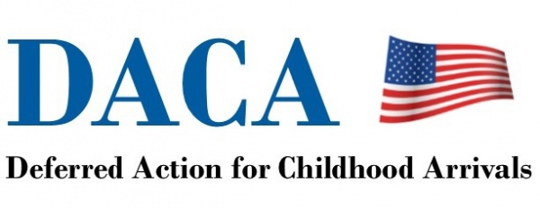As of the today’s date, Congress and the Trump Administration have been unable to strike a deal that would halt the termination of the Obama-era program designed to protect young, undocumented immigrants often referred to as “Dreamers”. Here’s what employers need to know:
What Happened? On September 5, 2017, the Trump Administration’s Attorney General Jeff Sessions announced that the Department of Homeland Security (DHS) will end the Deferred Action for Childhood Arrivals (DACA) program in six months.
What is DACA? Former President Obama enacted the DACA in 2012 to protect certain young, undocumented immigrants (“Dreamers”) from deportation and allow them to work legally in the U.S. for a renewable two-year period. To qualify for protection under DACA, “Dreamers” also needed to meet specific requirements as to age, education, and criminal background.
Who are “Dreamers”? DACA beneficiaries are referred to as “Dreamers” and include an estimated 800,000 young, undocumented immigrants. Dreamers were brought to the U.S. as children, usually by their parents or other family member.
When does DACA End? It will end on March 5, 2018, unless Congress is able to reach a long-term solution for DACA beneficiaries.
What does it mean for Employers? Organizations employing Dreamers will face legal and logistical difficulties. According to a report by the Center for American Progress, if Congress fails to take action, around 30,000 Dreamers could lose their jobs each month for the next two years. This job loss could cost employers up to $6.3 billion as a result of workforce turnover.
The Balancing Act: How to Avoid Discrimination Charges and Immigration
Law Violations
Employers need to comply with immigration law, but at the same time, they
must ensure that their compliance actions are nondiscriminatory. Here
are some quick do’s and don’ts:
- Don’t ask employees for any information beyond what is required by the Form I-9. Here are some other “don’ts” to remember when balancing immigration compliance with avoiding discrimination charges:
- Don’t ask employees if they are DACA beneficiaries or “Dreamers”. It does not matter if you empathetic to their dilemma and genuinely want to help them. Under the law, DACA recipients do not need to disclose their immigration status details.
- Don’t lay off employees early or rescind an offer of employment to individuals authorized to work in the U.S. based solely on the fact that their work permits will soon expire.
- Do review I-9 records consistently and utilize a system that notifies you when temporary work permits are close to expiring. Beware; penalties for organizations that knowingly employ individuals with expired work permits include fines of thousands of dollars for each unauthorized worker and even criminal action. Unless Congress figures something out in the next few months, employers will be forced to lay off DACA work permit holders as their permits expire.
- Do have a backup plan and prepare to strengthen recruitment efforts. Unless Congress comes up with a solution that allows the Dreamers to legally living and working in the U.S., organizations could lose multiple employees on short notice. Minimize workforce disruption by planning ahead.
- Do seek legal advice if you are unsure of your obligations following the end of DACA. An attorney can help you formulate a strategy that takes into account the specific facts of your employee’s situation and your organization’s unique needs.

